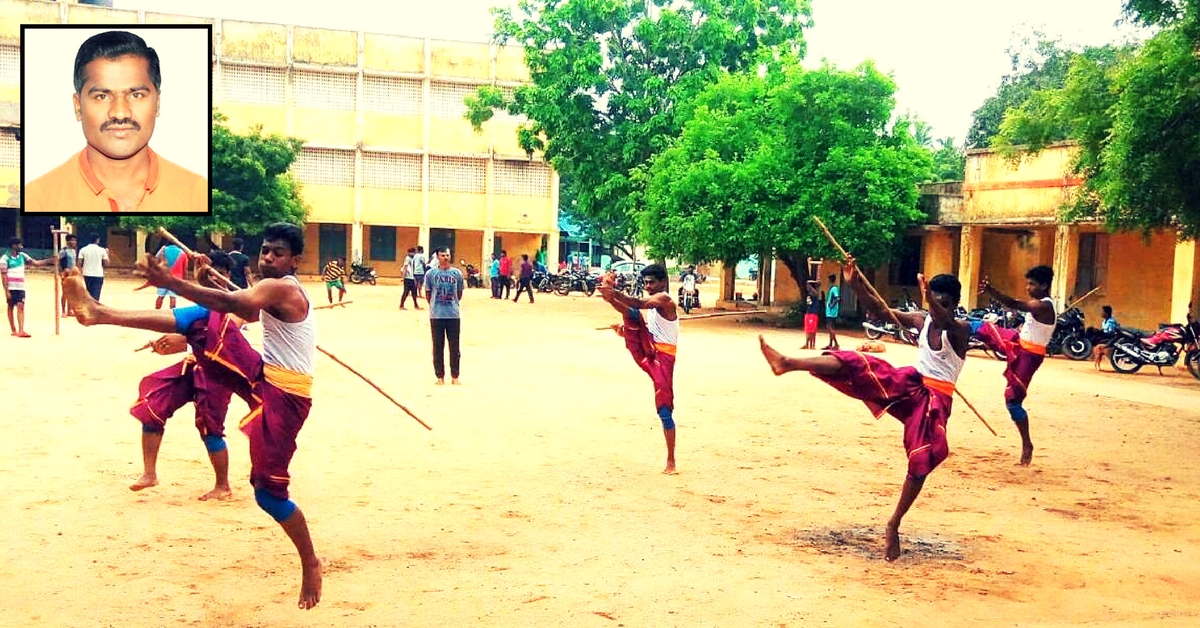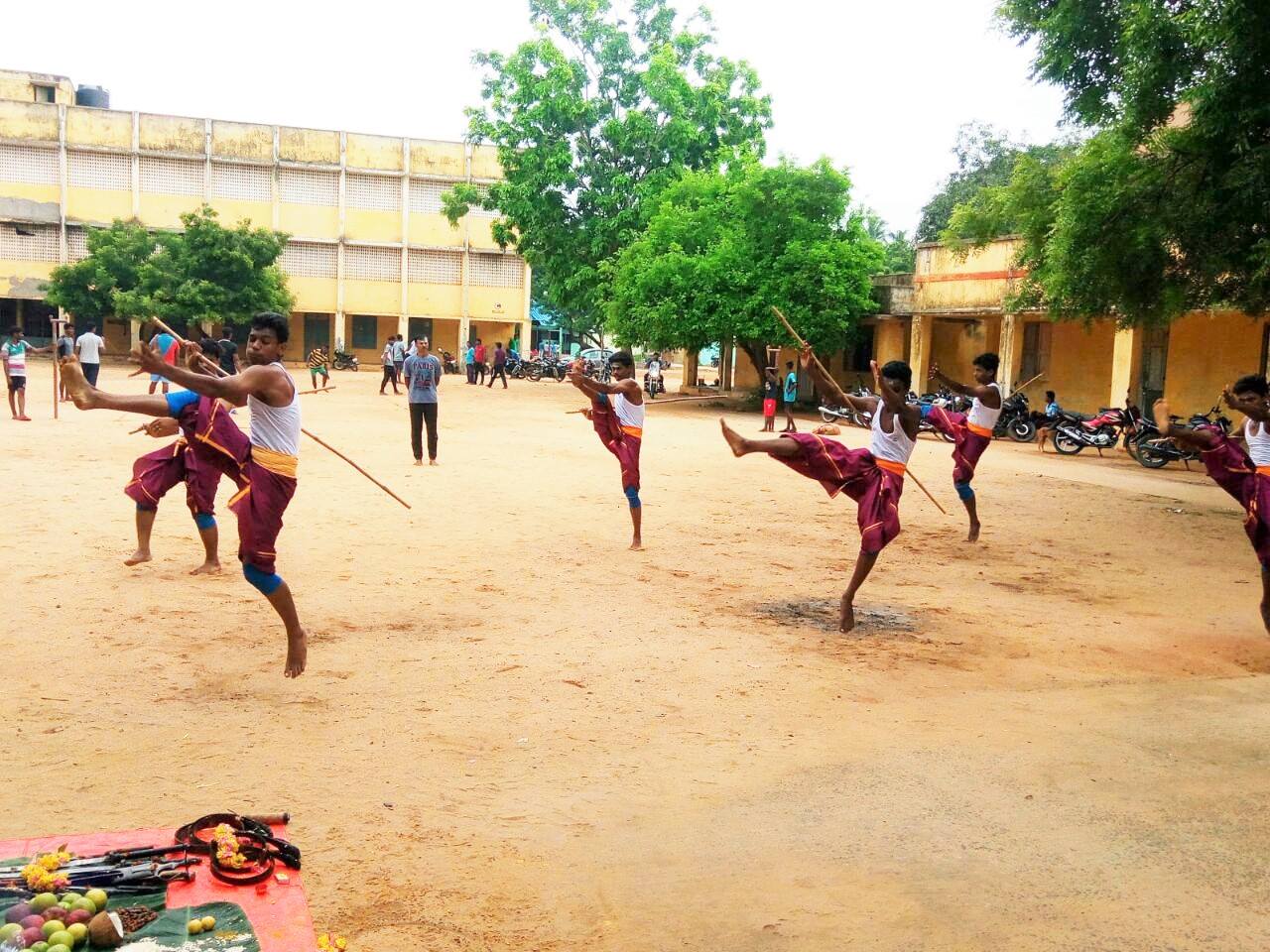This Man Quit His Studies to Revive the 3000-Year-Old Sport of Silambam in Pune!
Instead, this young man decided to revive a 3000-year-old sport, Silambam, popularly known as a Maradani Khel or 'masculine sport' in Maharashtra.

When 30-year-old Kundlik Marotrao Kachale was placed in an agriculture-based private company in his final semester, he refused to join it despite having secured 74 per cent at the Marathwada Agriculture University.
Instead, this young man decided to revive a 3000-year-old sport, Silambam, popularly known as a Maradani Khel or ‘masculine sport’ in Maharashtra.

A weapon-based Martial Art, the sport originated in Tamil Nadu. The word “Silambam” means a mountain. But one of the essential reasons behind the name is the mere sound the word makes is similar to the sound the weapon makes when Silambam fencers fight.
The sport is recognised with several names in different states including Mardani Khel (masculine sport) in Maharashtra, Kalaripayattu in Kerala, Gatka in Punjab, Chhadipatta in Haryana, with Silambam being recognised as the official name at the international level.
A war skillset prominent once among Maratha warriors, Silambam has lost its identity in the face of modern-day glitzy sports like cricket, believes Kundlik. This is essentially the reason he took it upon himself to revive the glory of the ancient Indian sport among youngsters.
Kundlik grew up in the village of Vaitagwadi from Parbhani district in Maharashtra and aced Indian sports like Kabaddi and wrestling. As the captain of the agriculture college team at his university, he met his Silambam guru Sanjay Bansode at one of the Kabaddi tournaments.
Speaking to the Hindustan Times, he revealed, “My guru trained me in various Silambam sports like lathi-kathi, swordsmanship, spears and dandpatta (the gauntlet sword). I won a gold medal at the national stick fighting competition held at Kanyakumari, Tamil Nadu in 2011. This gave me the motivation to excel further.”
Kundlik also clinched the bronze medal at the national Silambam competition in Patna and won a black-belt in martial arts.
Read more: Despite Patriarchy, How Kerala’s Bullet Queen Thundered on for 12000 Km in 42 Days!
He soon moved to Pune to prepare for the civil services, but a voice in his head continued to tell him to go back to Silabam. Unable to concentrate, he quit his preparation and decided to approach a few schools in Pune.
One of these Pune schools called Gogate school in Narayan Peth was impressed by the volley of medals and certificates and the Silambam demo that Kundlik showed them. They permitted him to use their ground.
Kundlik began training a small batch of 45 students as early as 2012. It was only in 2013 that Maharashtra government recognised and included Silambam in school curriculum as a ‘sport.’
“Now our players get grace marks under sports in Class 10 for Silambam. Right now, we have more than 1,500 students from New English School, Gogate Prashala, Nutan Marathi Vidyalaya, Ahilyadevi Prashala, Panditrao Agase School, Pune Cambridge school and World Aryan school. Six senior coaches and eight junior-level coaches trained under me are now conducting Silambam training in various parts of the city, ” he told the publication.
From someone as young as five years of age to enthusiasts who are as old as 75, Kundlik has no age bar for his students. In fact, several of them have clinched medals and laurels at national and international martial arts tournaments.
After the Pune Municipal Corporation (PMC) started organising Silambam competitions around the city, many girls started joining the sport.
Kundlik along with his team gives free of cost training to underprivileged students. The main focus of the sport he says is discipline.
Masters of lathi, swordsmanship and dandpatta the students are taught to never misuse their skills, following a strict code of ethics.
Ethics like, never attack a person who does not have a weapon; never attack the innocent, children and women and an oath never to misuse the training given.
We salute people like Kundlik who are dedicatedly trying to revive a lost part of our culture and heritage and raising a new generation of Indian athletes and sportspersons.
Feature Credit: Hindustan Times
Like this story? Or have something to share?
Write to us: [email protected]
Connect with us on Facebook and Twitter.
NEW: Click here to get positive news on WhatsApp!
If you found our stories insightful, informative, or even just enjoyable, we invite you to consider making a voluntary payment to support the work we do at The Better India. Your contribution helps us continue producing quality content that educates, inspires, and drives positive change.
Choose one of the payment options below for your contribution-
By paying for the stories you value, you directly contribute to sustaining our efforts focused on making a difference in the world. Together, let’s ensure that impactful stories continue to be told and shared, enriching lives and communities alike.
Thank you for your support. Here are some frequently asked questions you might find helpful to know why you are contributing?


This story made me
-
97
-
121
-
89
-
167













